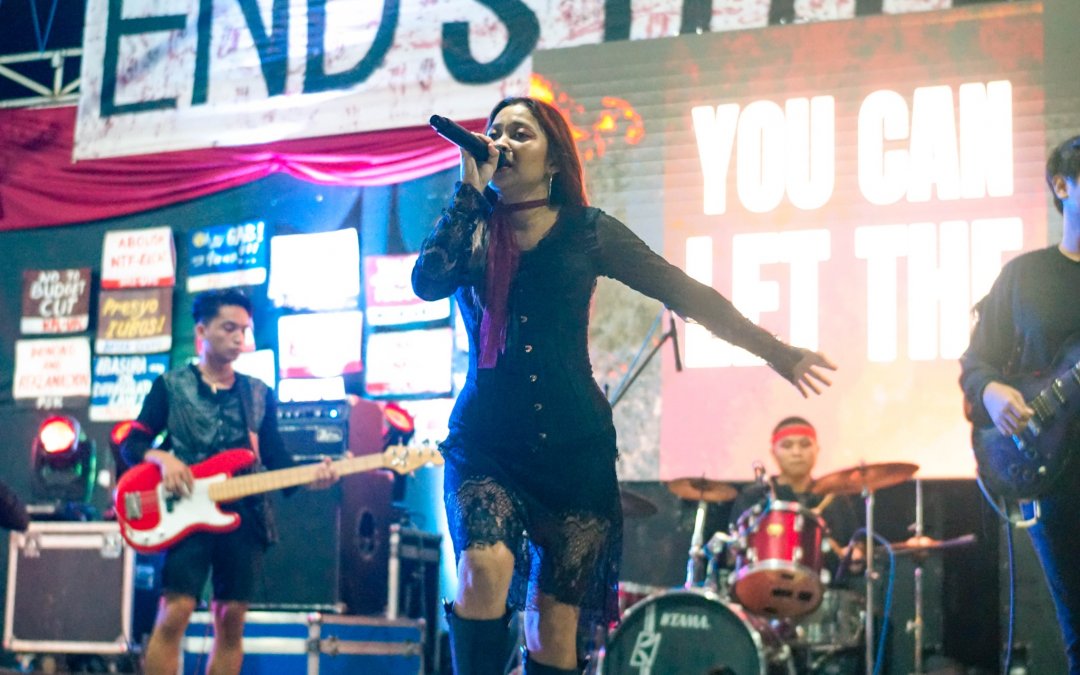Written by Dorothy Shane Pradas (2nd Year BA Communication)
Amidst budget cuts and heightened expectations, the University of the Philippines Cebu Student Council has decided to scale down this semester’s traditional Cookout into a ‘Pre-Cookout’ event on Friday, April 26, setting the stage for a bigger event in November.
This is intended to accommodate the limited budget of the student council, which, as Unified Student Organizations (UNISO) Chairperson Kate Guinocor explained, is about ₱20,000. This amount is insufficient, as the expenses for lights and sound alone in the initial plans are expected to amount to ₱17,000. This does not include the expenses for volunteers’ food, material costs, and the invitation of mainstream artists, who typically request a talent fee of about ₱85,000-₱125,000.
Immanuel Aquino, a student councilor, said that the initial proposals for the 2024 Cookout, *developed in consultation with the UP Cebu administration and the alumni association, included drawing inspiration from ‘Diliman’s UP Fair.’ Aquino said there were suggestions for a three-day Cookout, leading up to the main event with a carnival-like experience filled with activities.
However, this proved unattainable, as Guinocor said that planning an event of such magnitude would require six months. The All Leaders Meeting (ALM) to discuss Cookout plans convened only after the intramurals last February, leaving only two months for event preparation, according to Guinocor.
Pre-pandemic, the Cookout was traditionally held in November during the first semester. However, it was moved to the second semester as the school transitioned last year from remote learning to face-to-face classes, Guinocor said.
This decision to scale down the Cookout into a “Pre-Coookout” this semester may have stirred mixed feelings among the student body, accustomed to the much bigger Cookout event of last year and the pre-pandemic years.
However, for one of the Cookout’s early pioneers, lawyer Ruben Carranza (BA PolSci Batch 1985), revisiting the roots of the event is crucial to appreciate its profound significance beyond the spectacle. Carranza was the chairperson of the UP Cebu Student Council for two terms in AY 1983-1984 and AY 1984-1985. He now works as the Director of the Reparative Justice Program at the International Center for Transitional Justice (ICTJ) based in New York.
The first Cookout was held in 1982 by the student council, who were then dissatisfied with the “political nothingness of UP Cebu” during the unsettling time of the Ferdinand Marcos Sr. dictatorship. Carranza said the idea was conceived as a subtle act of defiance against the Marcos Sr. dictatorship.
In the early 1980s, the UP Cebu Student Council, aware of the political apathy among students, faced challenges in mobilizing them politically. Hindered by the dictatorship’s censorship of the media, they lacked access to broader student movements. This led them to contact the UP Diliman Student Council through letters to understand and discuss political issues.
Amid this repressive atmosphere, the term “Cookout” was chosen to disguise the event’s political undertones. The event was deliberately held at night to maintain an informal, non-political appearance, minimizing the risk of it being perceived as a rally by the authorities and a conservative college administration, Carranza said.
Despite challenges, the event featured live bands, and students brought food to share. Students were also subtly encouraged to bring signs, possibly political, which they could throw into the bonfire, allowing them to express their dissent in a guarded manner. This guarded approach was necessary because UP Cebu was under military surveillance, Carranza said, and any overt political activity could have provoked severe consequences.
The event ultimately proved to be successful in fostering student connection and providing relief from the “meaninglessness” of the school activities at that time, said Carranza. “Students really enjoyed breaking free from the usual, and the moderate political content we introduced was provocative enough to stir some thought,” he added.
Reflecting on the Cookout’s expansion in recent years, Carranza remarked, “Some things become too big for their own good. I suppose it just evolved into what it has become.”
He fondly recalled the first few Cookouts as intimate gatherings, primarily for UP Cebu students. The Cookout mixed students from various backgrounds, and in a way, it was one of the non-political successes of the event, as it bridged class divides, Carranza said.
The “UP Fair” in UP Diliman is something else, he added. It is specifically for UP Diliman and originated from the activities and circumstances prevalent at UP Diliman when it began.
Events have their own origins and histories. You can respect the memory, build your own, and change whatever you feel needs to change. But always remember the circumstances in which and why they happened, Carranza said.
The ‘Pre-Cookout’ event, scheduled for this Friday, April 26, will have the theme ‘Suwaw’ (Dazzle) and will take place at the *admin field, featuring performances from local artists and UP Cebu student organizations.
According to the organizers, the theme symbolizes the blurred lines between reality and deception, “drawing parallels between the distortion caused by the scorching sun and the persistent attempts to amend the 1987 Philippine Constitution concealed under the guise of national progress.”
(Inset: Contributed Photo of 2023 Cookout)

